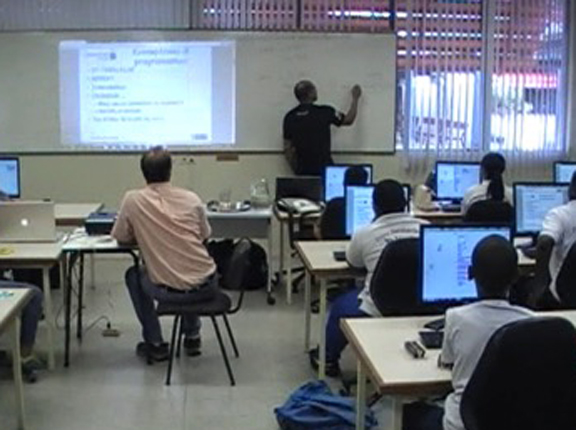Above: the event in Curacao last week
By the Caribbean Journal staff
Caribbean Small Island Developing States have to diversify their economies. Next to tourism services, the future of the Caribbean depends how competitive they become in Information Technology and Science. That means that investment in education can’t start soon enough.
It also means that doing so has to begin at a young age, something that happened at the recent Devoxx4Kids event held at the University of Curacao.
Last Saturday, the first Devoxx4Kids event took place with 35 children between 9 and 15 years participating.
Devoxx4Kids is a bottom-up international organization of IT professionals seeking to inspire children for programming, robotics and electronics. The hope is that these children become the next producers of great technologies in the future.
Most of the children did not have any previous experience with programming.
And their work was daunting: Urso Wieske, the organizer of this first event for the Caribbean, put a challenging task before them: to make their first fully working game in just one day.
The group used “Scratch,” an open source software programming tool created by M.I.T. to teach children the concepts of programming in a creative, fun and visual way.
And by the end of the day, the kids had done just that.
Scratch is also used in many activities of internationally known events like Devoxx4Kids USA San Francisco, Devoxx4Kids Europe and the Hour of Code project which is supported by many people like Bill Gates (Microsoft), Sheryl Sandberg (Facebook) and the singer Usher.
“The most remarkable observation was how motivated and engaged the children were from the beginning till the end of day while learning and having fun,” said Urso Wieske, a senior software developer who is the initiator of Devoxx4Kids Caribbean. “By organizing these technology events Devoxx4Kids strives to engage children at an early age into technology as producers rather than consumers of technology. Therefore, it contributes to the improvement of their educational development and hopes that they develop an interest for technology and science.”
